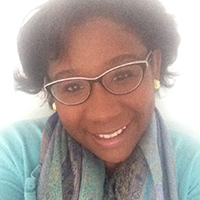Personal Stories

Arielle Dance
New York, USA
Arielle Dance’s last name fits her well. A dancer since childhood, the 27-year-old has always led an active lifestyle, whether it’s on or off the dance floor.
It was in 2010 that Arielle’s healthy lifestyle began to take a turn. After undergoing her fifth surgery for a condition called endometriosis, she began to experience severe chest pain.
“I first thought it was an asthma attack,” said Arielle. Her mother, who had a blood clot four years earlier, immediately recognized the symptoms. After being rushed to the hospital, Arielle was diagnosed with a pulmonary embolism (PE) and stayed in the hospital for several days.
Though she admitted the PE was “very scary,” Arielle was determined to jump back into her daily routine. She was prescribed anticoagulants for six months and began to move on with her life.
But just four years later her health took a turn once again. Arielle was on a non-stop cross-country flight when she began to feel leg pain and nausea.
“After I flew home, I felt fine,” she said. “It wasn’t until two days later the chest pain and shortness of breath returned. I thought, this can’t be happening again.”
But, it was happening. Arielle was admitted to the hospital and diagnosed with another PE. After two days of hospitalization, she was discharged under orders to use an oxygen tank.
“I was only 25 years old with an oxygen tank—it was difficult,” she shared. “Later, my doctors told me they would have to keep me on a blood thinner for the rest of my life because I seem to be prone to clotting. That was tough to hear along with the realization that I could have died – again.”
Arielle credits her mother as her “introduction to blood clots.” Since her mother had experienced a PE in 2006, she was well aware of the severity of the symptoms and importance of early intervention.
Thanks to an increase in media coverage, Arielle says she feels the public is increasingly knowledgeable about blood clots. After a recent celebrity was diagnosed with PE, she shared that friends and loved ones began to take her condition more seriously.
“I have close friends that I didn’t hear from while I was in the hospital after my PE,” she said. “And now they understand and care. The good thing is that it is opening their eyes that I have gone through a traumatic experience.”
Today, Arielle is an integrative medicine doctoral student. In addition to taking anticoagulants, she utilizes holistic approaches such as meditation, guided imagery and acupuncture to support her health. Still, she says blood clots are always in the back of her mind.
“After my second PE, I realized you need to stop and be grateful,” she said. “I always tell people that they are not invincible. That can be difficult for young people to understand, but it’s true. I am living testimony of it.”
